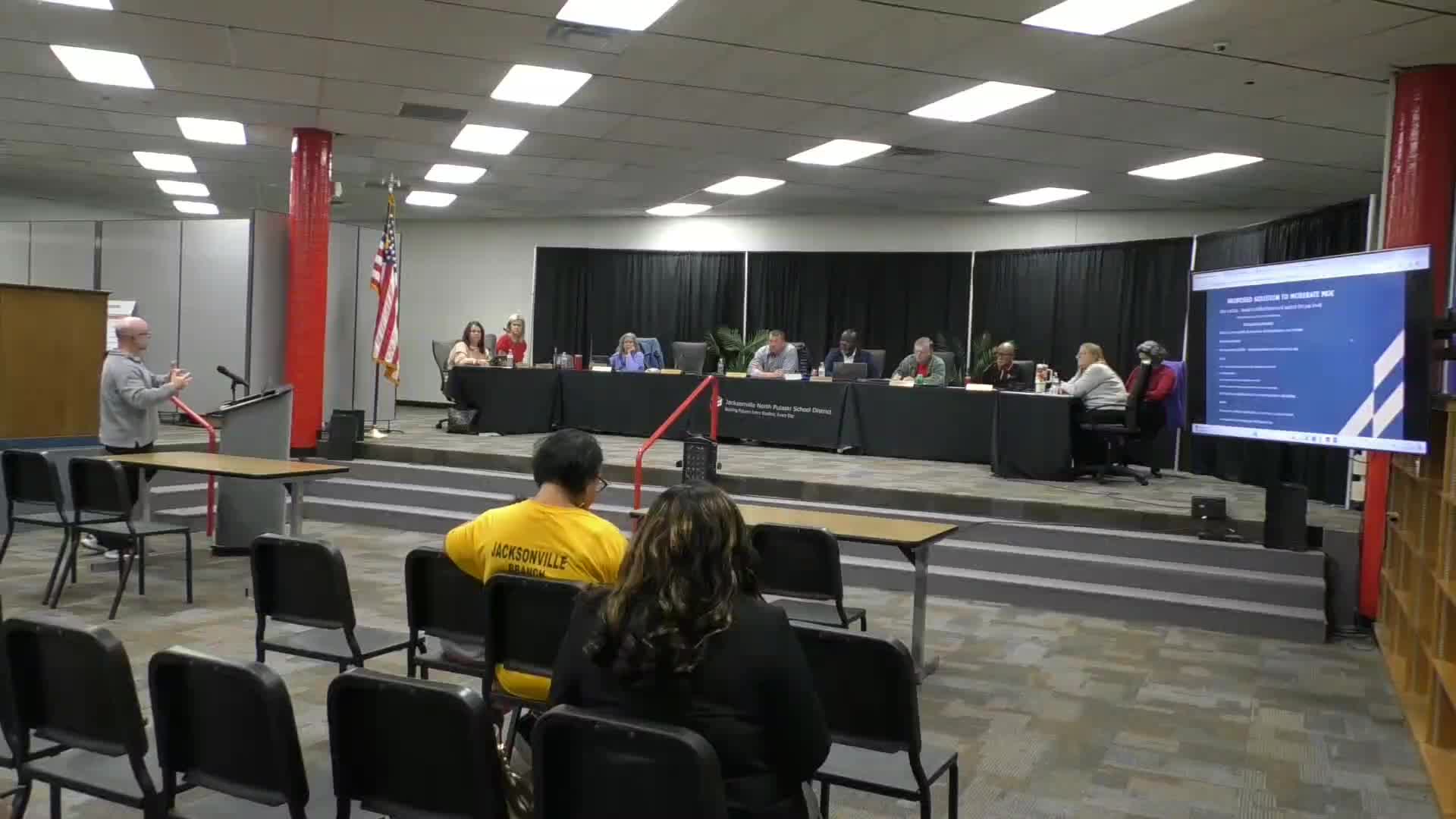JNPSD board approves BCBA and four RBTs to address rising behavioral needs

Summary
Board approved the district’s proposal to hire a Board Certified Behavior Analyst (BCBA) and four Registered Behavior Technicians (RBTs) after finance staff warned that rising special‑education costs and one‑to‑one paraprofessional placements threaten the district’s ability to meet maintenance‑of‑effort requirements.
The Jacksonville North Pulaski School District board on Nov. 4 approved hiring a Board Certified Behavior Analyst and four Registered Behavior Technicians to expand in‑district behavioral supports.
Director of Finance Kyle Hunt told the board the district’s special‑education maintenance of effort (MOE) obligations have increased substantially over recent years and that continuing on the current trajectory could become unsustainable. “Our projection for this year, by the end of the year, is we will have spent $5,200,000,” Hunt said, describing an increase from about $4.39 million in an earlier year. He said some high‑need students are supported by one‑to‑one paraeducator pairs that carry very large ongoing costs and that adding in‑district behavioral specialists could reduce that reliance.
The hire package approved by the board places the BCBA at a director pay level (B13) to attract a highly credentialed candidate and adds four RBTs who would be trained and supervised by the BCBA. Hunt described the positions as district‑wide supports that would assist both special‑education and general‑education classrooms: “These people would work with not only sped students … but also regular ed gen ed students, whatever they needed,” he said.
Board members asked for clarifications about how many one‑to‑one paras currently support students. Hunt said there are roughly 60 elementary students in life‑skills classes and about 30 one‑to‑one para assignments in elementary; staff have added about 12 new one‑to‑ones this year for safety. He explained that one‑to‑one assignments for health‑care needs are legally required in some cases, and that one‑to‑one placements for behavior are IEP‑team decisions.
Hunt and other staff noted funding sources that offset local costs for students with extensive needs, including federal special‑education allocations and catastrophic funds, but said those sources do not always fully cover the total cost of a dedicated para. The district characterized the BCBA and RBT hires as an upfront investment intended to reduce long‑term MOE growth by enabling behavior interventions, staff training and fewer long‑term one‑to‑one placements.
The motion to approve the hires passed unanimously.
Local and federal law cited during the discussion included IEP and ADA Section 504 processes and the federal maintenance‑of‑effort requirement tied to special‑education funding. District staff emphasized that the proposed BCBA role is not formally housed inside special education so the specialist can work across the district.
The district will now proceed to fill the positions and integrate them into special‑education and instructional support systems; human resources will oversee recruitment and onboarding.

